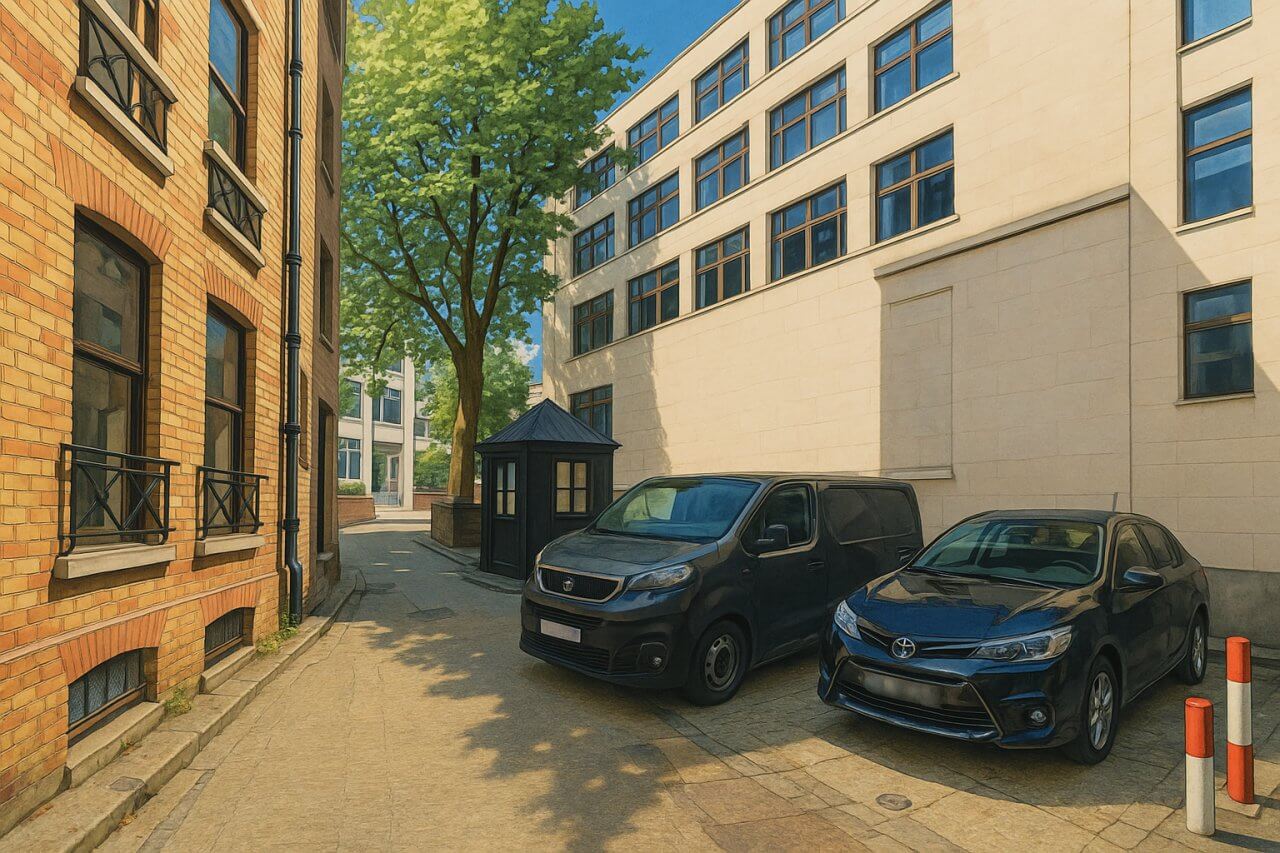
Barlow Place, London
Barlow Place is a short, tucked-away lane in Mayfair, within the heart of the City of Westminster, central London. Accessed solely from Bruton Street, this discreet passage has a quiet, almost hidden character, with its former connection to Bruton Lane long since gated off. Its subtle charm, prime location, and historical obscurity make it a point of intrigue for those curious to explore London beyond its headline landmarks.
Location and Access
Barlow Place is accessed exclusively from the southern side of Bruton Street, a well-known street in Mayfair. It is no more than 50 metres in length, with no vehicular through-traffic. The lane formerly connected through to Bruton Lane, but that access was closed off as early as 2015. Today, it forms a small cul-de-sac or back lane with restricted access, largely serving the rear sides of nearby buildings.
Traffic on Barlow Place is minimal. It serves as a service and private access road rather than a thoroughfare, with limited vehicle access and a pedestrian-friendly feel. Most visitors encounter Barlow Place by accident while exploring Bruton Street or Mayfair’s surrounding grid of elegant lanes.
Name, Pronunciation and Origins
The name Barlow Place likely originates from a historical landowner or developer, a common naming convention for streets in this part of London during the 18th and 19th centuries. However, records of the specific origin remain scarce. The pronunciation of "Barlow" is BAR-loh /ˈbɑː.ləʊ/  .
.
Character and Ambience
Barlow Place is markedly different from its more high-profile neighbours in Mayfair. It exudes a quiet, utilitarian character. Lined with brick façades and mews-style rear entrances, it lacks grand storefronts or notable façades, yet offers a glimpse into the service and structural fabric behind the scenes of Mayfair’s opulence. Despite its unassuming appearance, the lane reflects the area’s exclusivity through discreet signage, high-end security, and the aura of privacy.
Nearby Attractions and Sights
Although Barlow Place itself is primarily functional, its location places it within minutes of many notable sights and attractions in Mayfair and beyond. Just around the corner are:
- Berkeley Square – one of London's most prestigious garden squares, a short walk to the west.
- Bond Street – a luxury shopping destination, accessible via Bruton Street and New Bond Street.
- Royal Academy of Arts – situated nearby in Piccadilly, offering exhibitions and cultural programming.
- Green Park – a tranquil royal park that leads to Buckingham Palace, located just south of Mayfair.
Real Estate and Property Values
Properties on and near Barlow Place reflect the extraordinarily high values typical of Mayfair. While Barlow Place itself is not a residential street in the conventional sense, nearby mews houses and flats often command prices well above the London average. As of early 2025, one-bedroom flats near Barlow Place average between £1.4 million and £2.2 million for properties measuring approximately 800 sq ft (74 sq m). Larger mews homes can exceed £4 million, depending on features and condition.
These figures place Barlow Place's vicinity among the top 5% of real estate values in London, rivalling parts of St James's and the City for exclusivity and price per square foot.
Transport Connections
Barlow Place is well-served by public transport despite its secluded nature. Nearby London Underground stations include:
- Bond Street Station – served by the Jubilee Line and Central Line, about 6 minutes on foot.
- Green Park Station – with access to the Jubilee Line, Piccadilly Line, and Victoria Line, approximately 8 minutes away.
- Oxford Circus Station – further north, served by the Bakerloo Line, Central Line, and Victoria Line.
Several London bus routes also operate nearby along Regent Street, Piccadilly, and Oxford Street, providing easy links to Westminster, the West End, and beyond.
History of Barlow Place
Though Barlow Place is a minor lane today, it would have emerged alongside the surrounding development of Mayfair in the 18th and 19th centuries. The lane likely served as service access for larger estates and commercial premises on Bruton Street. Its obscure nature meant it largely escaped the grand redevelopment of nearby streets, preserving its original scale and alignment even as other parts of Mayfair modernised.
The blocking of access to Bruton Lane occurred at some point prior to 2015, with gates and security barriers marking the shift in function from public right of way to restricted passage, possibly in response to increased privacy needs of nearby commercial tenants.
Fun Fact
A curious detail about Barlow Place is its near invisibility on many standard tourist maps. Despite being in one of the most visited districts in central London, the lane is often left unlabeled—making it one of Mayfair’s least-known named streets.
Quick Facts
- Location: Off Bruton Street, Mayfair, City of Westminster
- Length: Approx. 50 metres
- Access: Entry from Bruton Street only (access from Bruton Lane gated off since before 2015)
- Pronunciation: BAR-loh /ˈbɑː.ləʊ/
- Character: Quiet, functional lane behind Mayfair properties
- Nearby Sights: Berkeley Square, Bond Street, Green Park
- Underground Stations: Bond Street, Green Park, Oxford Circus
- Bus Stops: Available nearby on Regent Street and Piccadilly
- Property Values: £1.4–£2.2 million for flats (~800 sq ft / 74 sq m) as of 2025
- Historic Use: Service access lane for surrounding estates
Map of Barlow Place, London

Painting of Barlow Place, London (View image in full size)